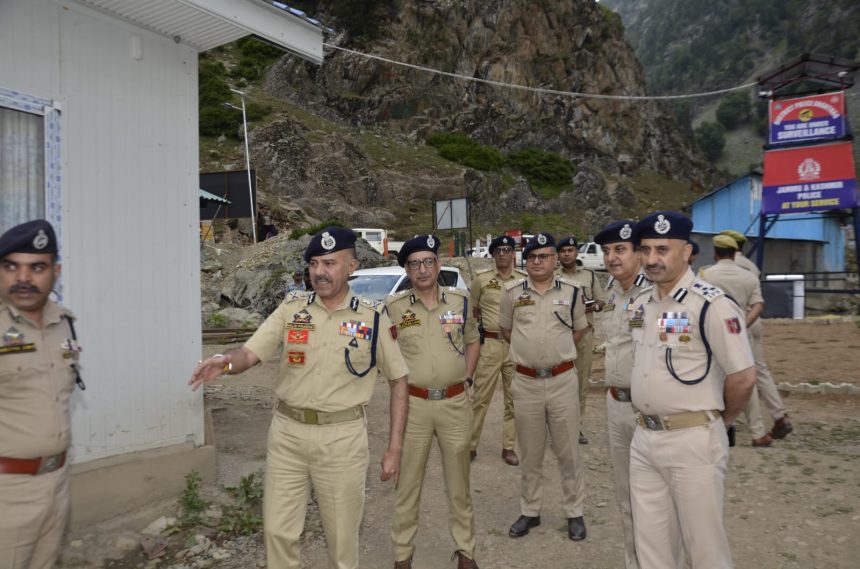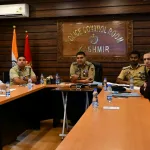Srinagar, June 30: As the annual AmarnathYatra gears up to begin on July 3, authorities have implemented an unprecedented multi-layered security apparatus across the pilgrimage routes, in response to heightened threat perceptions following the April 22 terror attack in Pahalgam.
The 38-day pilgrimage to the 3,880-metre-high cave shrine in South Kashmir’s Himalayas—shortened from 52 days last year—will conclude on August 9, coinciding with RakshaBandhan.
In a major security upgrade, facial recognition systems (FRS) have been deployed for the first time along both the Pahalgam and Baltal routes. A senior official involved in the setup told Rising Kashmir that the system, loaded with images of active terrorists and suspected overground workers (OGWs), has already yielded results. On June 19, two OGWs were apprehended after being flagged by the FRS.
“As soon as a blacklisted individual appears on the camera, an alarm is triggered at the control centre monitored by security forces, enabling immediate response,” the official said.
Additionally, the entire Yatra corridor has been declared a ‘no-fly zone’. A government order has banned the use of UAVs and drones along the route from July 1 to August 10. Surveillance will also be maintained through an extensive CCTV network, while a three-tier security grid has been established around all base camps and along vulnerable stretches of the Jammu-Srinagar National Highway.
To monitor pilgrim movement in real time, Radio Frequency Identification (RFID) tagging has been made mandatory for all vehicles and individual pilgrims, allowing security agencies to track them across the route.
Random vehicle checks are being conducted day and night across highways and link roads. “No vehicle or individual is being allowed to proceed unchecked as part of the protocol,” a police officer confirmed.
In Jammu, police have significantly strengthened security by setting up joint naka points at multiple strategic locations, including highways, city outskirts, and around the base camp. These checkpoints will remain operational 24×7 throughout the Yatra period.
Personnel from the CRPF, CISF, ITBP, and J&K Police have been deployed for intensive frisking, surveillance, and identity verification. “Naka teams have been instructed to maintain strict vigilance while treating civilians and pilgrims with respect,” a police spokesman said.
In preparation for the Yatra, police also conducted a mock drill exercise at the YatriNiwas Base Camp in Bhagwati Nagar, Jammu. The multi-agency drill was aimed at testing coordination, response readiness, and overall preparedness. “A detailed briefing followed to ensure vigilance and coordination among all deployed units,” the spokesperson added.








